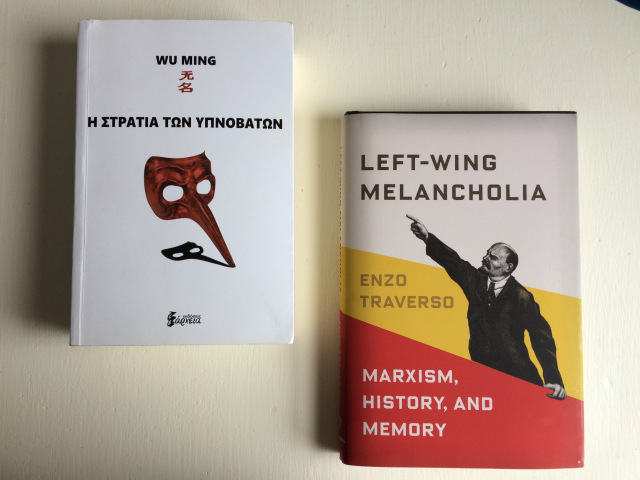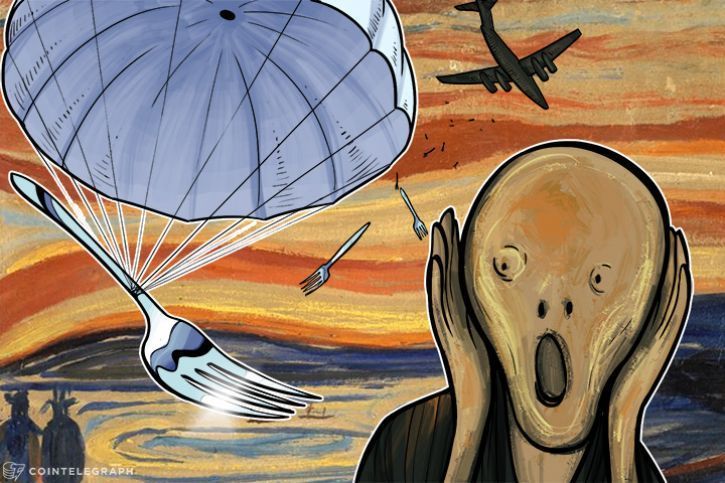
A challenging contribution to current discussions of the global predicament of the left has been recently published: Enzo Traverso’s beautifully written, well illustrated, widely learned Left-Wing Melancholia: Marxism, History, and Memory (2016). It is a study of left melancholia of a century of defeated revolutions which posits that “the history of revolutions is a history of defeats, because all of them have been followed by restorations, authoritarian turns, and Thermidorean reactions” (32). Its central figure is Walter Benjamin who combined the three M’s (Scholem’s Messianism, Brecht’s Marxism, and Warburg’s Melancholy) to counter Carl Schmitt’s Catholic “political theology” with his own Jewish “political theology,” namely, revolution as redemption and exodus from history.
Traverso’s book of melancholia reads as a companion to his The End of Jewish Modernity (2013), a book of mourning over the exhaustion of Jewish critical thought. Together they constitute an elegy for Mitteleuropa anti-mimetic and socialist radicalism. The author marks the collapse of that world by recalling the solemn mourning of communism in Theo Angelopoulos’ film Ulysses’ Gaze (1995) when a broken and fallen statue of Lenin traverses the Danube “leaving the stage of history” (79).
It is worth reading this study together with The Army of the Sleepwalkers (2014), the latest and in every respect grandiose 800-page novel (still not in English translation) by the “anonymous” Bolognese collective Wu Ming. It covers the years 1793-95 of French history, the “Reign of Terror,” focusing not on the external defeat of the revolution but on its self-defeat, the gradual bankruptcy of left governance. Though it reads as a novel, it is structured as a five-act Romantic tragedy (by, say, Victor Hugo or even Romain Rolland) to dramatize in a Mnouchkinian spectacle that dimension of history which Benjamin occluded and exorcised throughout his career, the tragedy of revolution.
As Traverso mentions in his melancholic study, Raymond Williams observed that “revolutions always tend to deny their tragic dimension” and they “never conceive themselves as tragic events” (52). Indeed, in his Modern Tragedy (1966) Williams noted that in modern times “the ordinary separation of social thinking and tragic thinking. The most influential kinds of explicitly social thinking have often rejected tragedy as in itself defeatist. … The idea of tragedy, that is to say, has been explicitly opposed by the idea of revolution” (63). This is a most interesting question: Why protect revolutionary failure from the consequences of hubris by ignoring any connection of defeat with tragedy?
Writing under the sign of left melancholy in the wake of what he describes as the collapse of communism, the paralysis of the “velvet revolutions,” the deadlock of the “Arab Spring,” and the exhaustion of the social movements, such as feminism, Traverso is renewing explicitly Daniel Bensaïd’s “melancholic bet” (234) in an effort to salvage the anticipation of utopia and keep the covenant of redemption alive in the age of Holocaustal trauma and its memory. Thus he proposes to replace Benjamin’s Jewish “political theology” with Lucien Goldmann’s Pascalian one, and the Messiah with the latter’s “Hidden God.”
On the other hand, by showing in their novel that the mesmerized forces of the counter-revolutionary sleepwalkers are already in power and that the time of the “Great Parody” has arrived, Wu Ming argue that, more than the melancholia over the defeated revolution (or lost election, failed referendum, and the like), it is the tragedy of the self-undermined left governance, the “Thermidor reaction” (be it in Paris in 1794 or in Athens in 2015), that is of urgent relevance to the predicament of today’s left.
May 25, 2017
Advertisements Share this:




